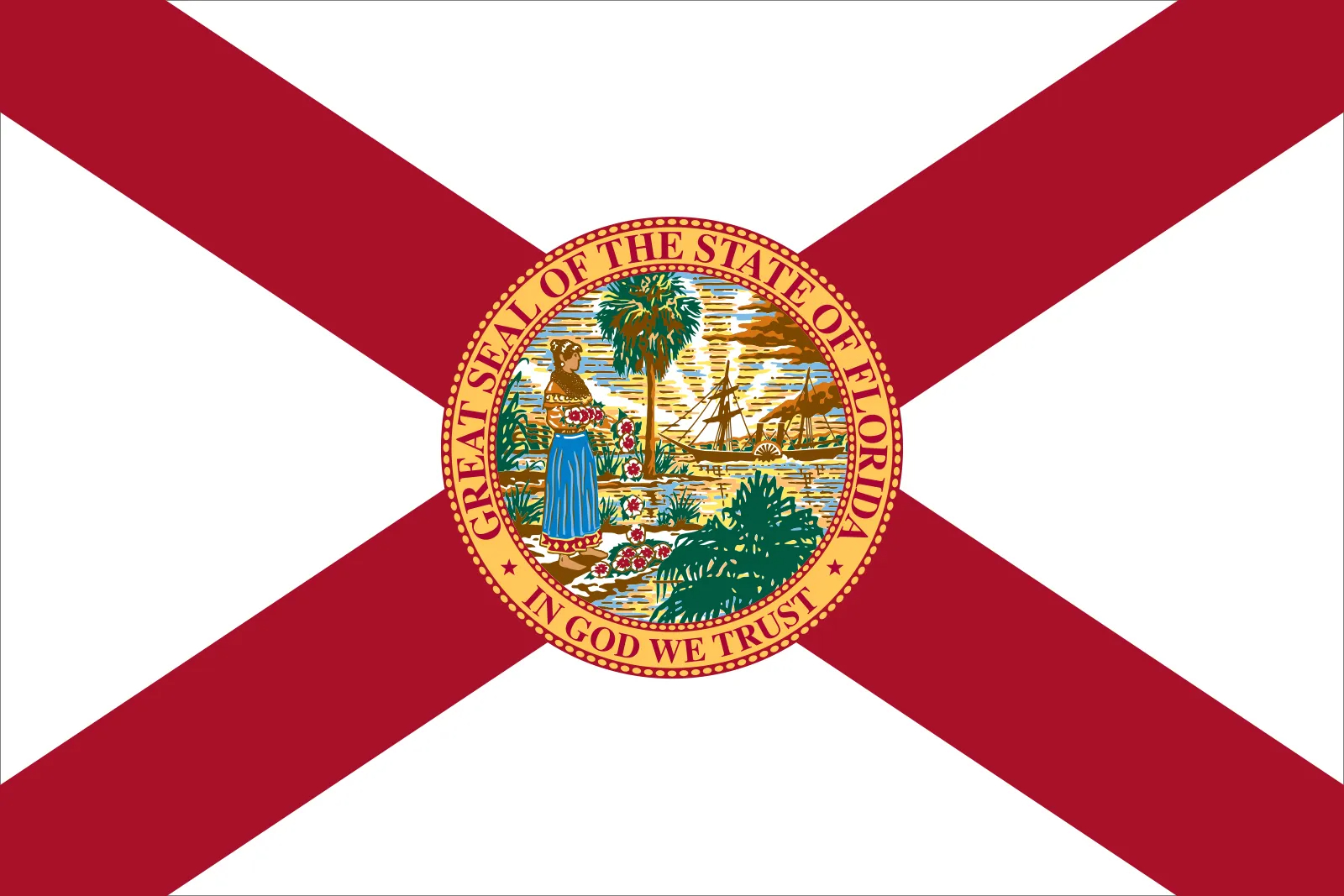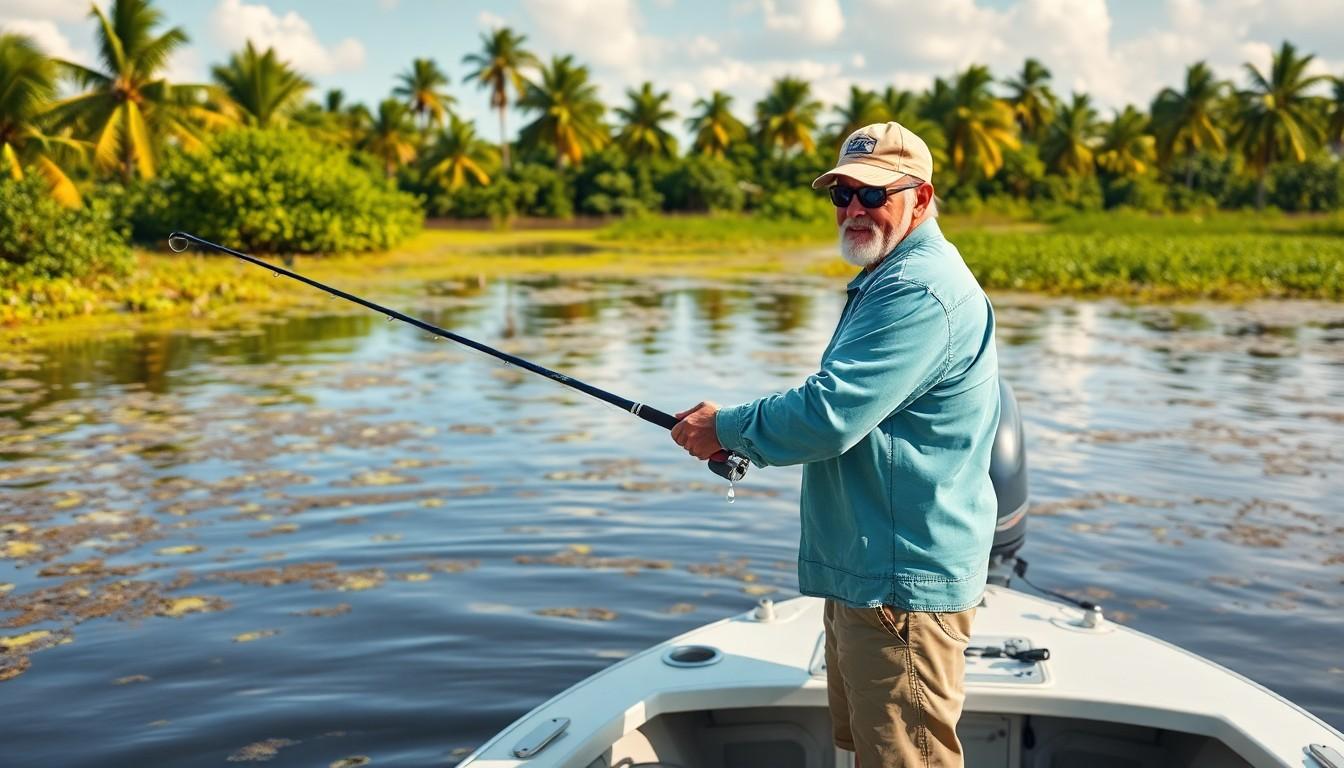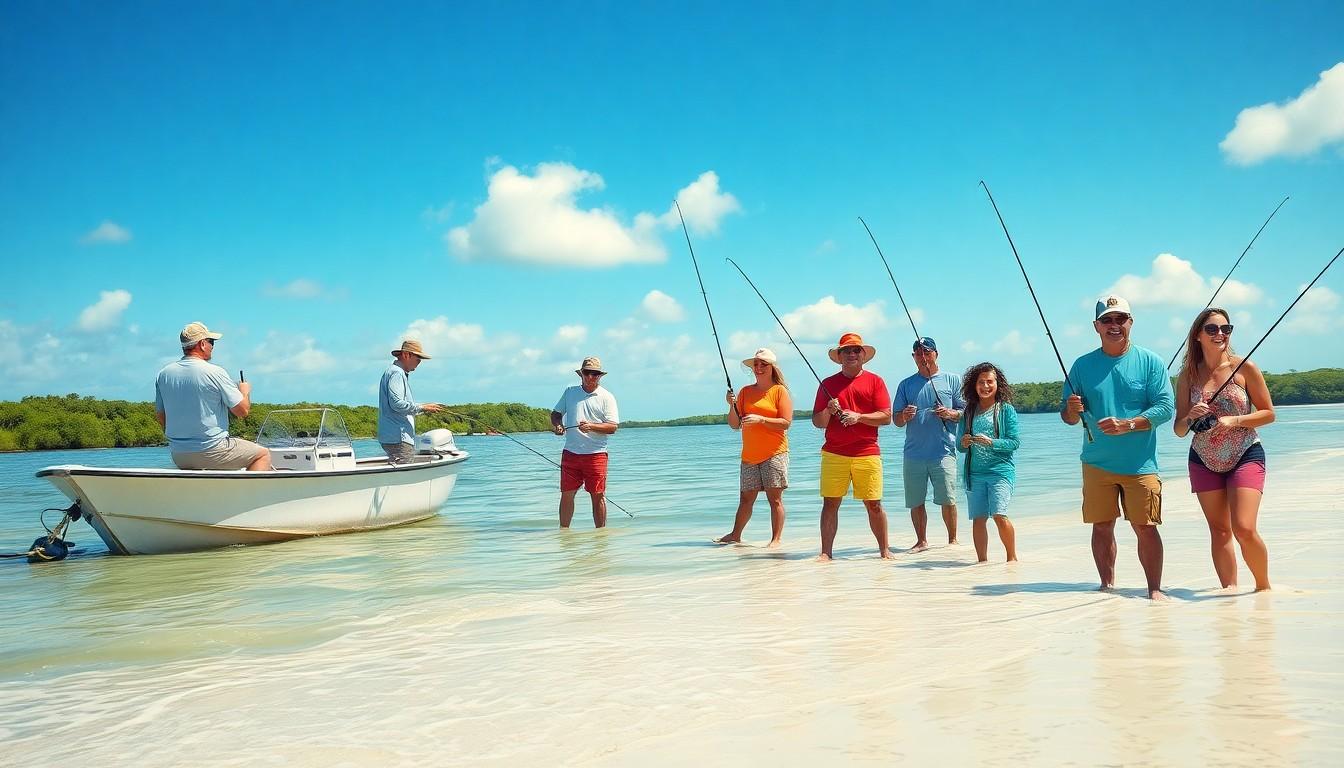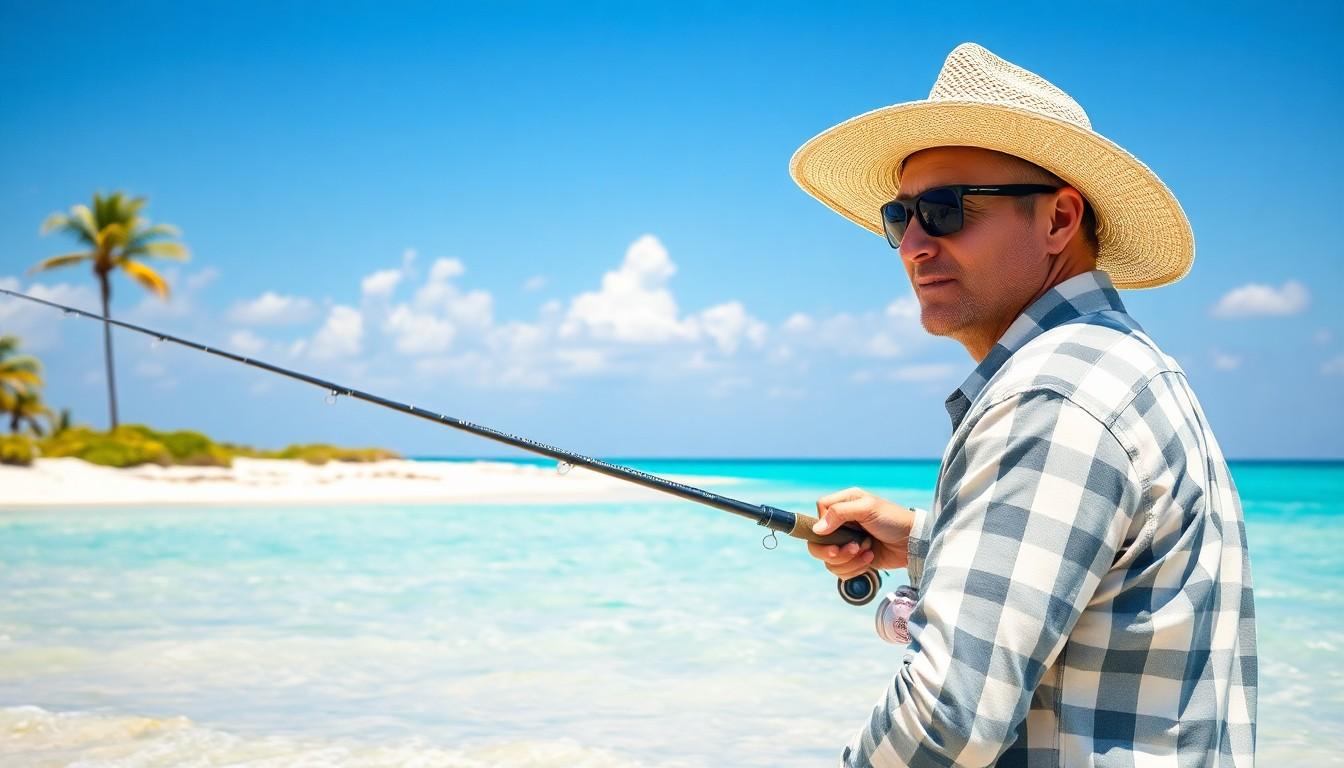
Florida Fishing License
Florida's vibrant waters teem with an incredible variety of fish, making it a prime destination for both residents and visitors eager to cast their lines. But before you dive into the adventure, it's essential to understand the fishing license requirements that keep Florida's aquatic ecosystems thriving. With different types of licenses available for freshwater and saltwater fishing, knowing what you need can save you time and ensure compliance with state regulations.
Whether you're a seasoned angler or a novice just starting out, obtaining a fishing license is a crucial step. Not only does it grant you the right to fish, but it also supports conservation efforts in the state. So, let's explore the ins and outs of Florida fishing licenses, from who needs one to where you can get it, ensuring you are fully prepared for your next fishing excursion.
Understanding Florida Fishing Licenses
Florida offers various types of fishing licenses catering to different needs and preferences.
Types of Fishing Licenses
- Freshwater Fishing License: This license is required to fish in lakes, rivers, and freshwater bodies. It allows you to target freshwater species such as bass or catfish.
- Saltwater Fishing License: For fishing in coastal and ocean waters, this license is essential. It permits you to catch various marine organisms like grouper, snapper, and shellfish.
- Combination License: This option covers both freshwater and saltwater fishing, providing flexibility for different fishing environments.
- Specialty Licenses: These include permits for specific activities or regions, catering to unique needs. Examples are commercial fishing licenses for businesses or specific mix licenses for certain species.
- Resident and Nonresident Licenses: Florida residents and nonresidents over 16 years of age must obtain appropriate licenses. Certain exemptions apply, such as for active military members or individuals over 65.
You can purchase these licenses through various locations, including the Florida Fish and Wildlife Conservation Commission (FWC) website, tax collector offices, and select retailers.
Special Licenses and Permits

Florida offers specialized licenses and permits to cater to specific fishing needs and demographics. Understanding these options ensures compliance with regulations and enhances the fishing experience.
Gold Sportsman's License
Gold Sportsman's License combines multiple fishing privileges, including saltwater and freshwater fishing licenses, along with hunting licenses. This license provides access to wildlife management areas and specific permits like deer and turkey hunting. Available in both annual and five-year formats, it appeals to individuals seeking comprehensive outdoor experiences. Florida residents, including military members, can obtain this license at tax collector offices or online. Many take advantage of the Gold Sportsman's License due to its value and the breadth of activities covered under one permit.
Lifetime Fishing Licenses
Lifetime Fishing Licenses grant Florida residents with a permanent authorization for freshwater and saltwater fishing. Individuals aged 16 years and older may apply for these licenses, which remain valid regardless of residency changes after purchase. This license eliminates the need for annual renewals and fosters long-term investment in fishing activities. Eligible minors can also acquire a youth lifetime license, which remains effective until their 17th birthday. Availability is online and at designated offices, ensuring accessibility for Florida's fishing community and encouraging participation in sustainable fishing practices.
Eligibility and Exemptions

Understanding who must acquire a Florida fishing license is crucial for compliance and conservation. A license is essential for any individual fishing in Florida’s waters, including both freshwater and saltwater. This requirement applies to all nonresident and Florida resident anglers aged 16 and older. When fishing from a boat or the shoreline, obtaining the appropriate license becomes mandatory.
Who Is Required to Have a License
Individuals must secure a valid Florida fishing license when participating in any fishing activity. Nonresidents or Florida residents engaged in fishing from a boat or directly from the shoreline must possess the proper license. Additionally, anglers must always have proof of identification along with their licenses or permits while fishing. The Florida Fish and Wildlife Conservation Commission mandates these rules to ensure sustainable fishing practices and environmental protection.
Exemptions for Certain Groups
Several exemptions apply to the Florida fishing license requirement. Individuals under 16 years of age do not require a license when fishing. Florida residents aged 65 or older can fish without a license if they provide proper identification that confirms both age and residency. Active duty members of the U.S. Armed Forces who are Florida residents also qualify for exemption when home on leave for 30 days or less, provided they carry valid orders. Furthermore, individuals fishing from licensed vessels or from certain fixed structures, such as piers, can also fish without a license, reinforcing the variety of ways to engage with Florida's fishing opportunities.
How to Obtain a Florida Fishing License
Online Application Process
You can easily apply for a Florida fishing license online through the Florida Fish and Wildlife Conservation Commission (FWC) website. This convenient process allows for quick access to various licenses, including freshwater and saltwater options. To start, visit the official FWC site and navigate to the licenses section. Select the desired fishing license type, complete the required information, and make the payment. Once completed, you will receive your license via email, usually within minutes, allowing me to begin fishing right away.
In-Person Application Options
You also have the option of obtaining a Florida fishing license in person. Local tax collector offices serve as primary locations for license purchases. At these offices, You can receive assistance in selecting the appropriate license type. Additionally, certain retailers, such as sporting goods stores and bait shops, offer fishing licenses for sale. When visiting any of these locations, you need to provide the necessary identification and payment to expedite the process.
Fees and Payment Methods
You need to be aware of the fees associated with the Florida fishing license. Generally, annual freshwater and saltwater licenses range from $17 to $32, while combination licenses may have different pricing. Payment methods include credit or debit cards for online applications, while in-person transactions may accept cash, checks, or cards. Understanding the costs ensures you can budget accordingly for my fishing activities in Florida.
Common Questions and FAQs

Do I Need a Freshwater or Saltwater Fishing License?
Determining the type of fishing license required depends on the water where you plan to fish. You need a freshwater fishing license for fishing in lakes, rivers, or streams within Florida. Conversely, a saltwater fishing license is necessary when fishing in coastal waters, such as the ocean or bays. If you target both freshwater and saltwater species, obtaining a combination license offers convenience. Regulations state that any nonresident or Florida resident fishing from a boat or shoreline must have the appropriate license unless exempt.
How Long Is My License Valid?
Your Florida fishing license is generally valid for 12 months from the date of issuance. The expiration date appears on the license itself. If you choose a five-year or a lifetime fishing license, those options provide benefits over the annual license by eliminating the need for frequent renewals. Staying informed about my license's validity helps avoid potential penalties while enjoying fishing activities in Florida.
Where Can I Check My Current License Status?
Checking my current Florida fishing license status involves a few easy steps. You can visit the Go Outdoors Florida website and provide the required identification information to access your license details. This online service displays active licenses and allows you to review your license history. If you encounter issues, contacting customer service via the toll-free number provided by the Florida Fish and Wildlife Conservation Commission offers assistance for any inquiries related to my fishing license status.
Troubleshooting Common Issues
License Replacement Process
The License Replacement Process for a Florida fishing license occurs in a few straightforward steps. For a lost or stolen license, You can reprint it online at the Go Outdoors Florida website without incurring any charges. Alternatively, visiting a license agent or tax collector's office for a reprint offers convenience. This option incurs a fee of $2.50. If you lose a hard card, a replacement fee of $5 applies for annual and five-year licenses, while a fee of $10 applies for a lifetime license card. Keeping proof of identification on hand during this process ensures a smooth replacement experience.
What to Do If You Can't Find Your License
If you can't find your Florida fishing license, immediate actions help clarify your fishing status. First, You can check my current licenses online through the Go Outdoors Florida site, where you only need to enter your identification information. If unable to retrieve the license online, contacting customer service at 1-888-FISH-FLORIDA for assistance. They provide support to confirm whether your license is still valid or if you need to initiate a replacement process. Avoiding unnecessary fishing without a license ensures compliance with state regulations.
Fishing Without a License: Risks and Consequences
Fishing without a Florida fishing license poses significant risks and consequences. Engaging in unauthorized fishing results in penalties, including fines up to $500 for first-time violations. Beyond monetary fines, law enforcement could confiscate fishing equipment, further impacting my fishing experience. Additionally, a history of violations may lead to increased scrutiny during future fishing activities. Understanding these risks underscores the importance of maintaining an active fishing license, ensuring compliance with state regulations and protecting my right to fish legally.
Conclusion
Getting a Florida fishing license is essential for anyone looking to enjoy the state's rich fishing opportunities. By understanding the different types of licenses available and the specific requirements for residents and non-residents, You can ensure a smooth fishing experience. Remember that having a valid license not only allows me to fish legally but also supports conservation efforts that help maintain Florida's beautiful aquatic ecosystems. Whether you choose a freshwater, saltwater, or combination license, you're making a responsible choice that benefits both your fishing adventures and the environment. So before you cast a line, Make sure you have your license in hand. Happy fishing!


